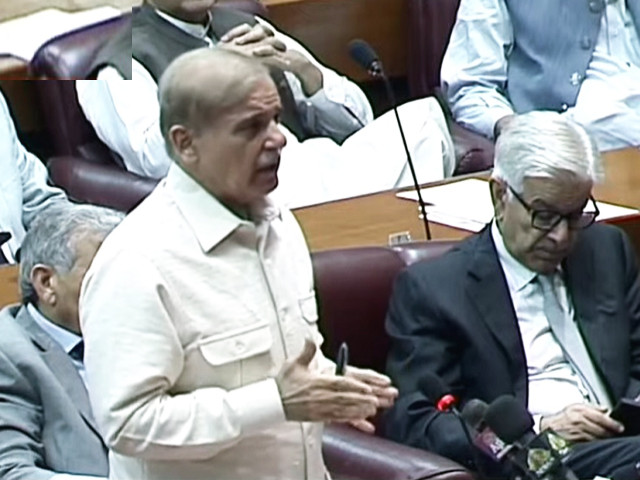
After a week of devastating rains wreaking havoc in several parts of the country, the PML-N-led government has finally sprung into action, forming a special federal committee to determine the damage in areas affected by monsoon downpours and floods.
Prime Minister Shehbaz Sharif on Thursday was informed during a meeting that the recent rains and floods had left at least 356 people dead and 406 others injured as the country was being severely affected by the effects of climate change.
Subsequently, the premier formed a special committee to assess the damage in the affected areas. The body would visit the affected areas within the next four days.
On August 4, short, mid and long-term plans would be made in light of the committee’s recommendations.
PM Shehbaz instructed the relevant ministries and institutions to speed up their efforts to obtain financial support by establishing contact with international donor agencies.
The prime minister noted that climate change was an undeniable reality of our times and had serious consequences for developing countries including Pakistan. “Our ongoing floods & torrential rains need to be seen from that angle,” the premier said. “The government is aligning its development goals with the climate change requirements,” he added.
PM Shehbaz said that the Centre would fully support the provincial governments to deal with the effects of this natural disaster.
Keeping the loss of lives, infrastructure, properties and business as more rains and floods continue to cause destruction throughout the country, the premier directed the authorities concerned to increase the aid to the injured and the affected households from Rs50,000 to Rs200,000.
Along with this, PM Shehbaz issued instructions to increase the assistance for partially affected houses from Rs25,000 to Rs250,000 and for the completely affected houses from Rs50,000 to Rs500,000.
The premier also approved compensation for the victims. who were killed after a boat capsized in Rahim Yar Khan district. In addition, PM Shehbaz said the federal government would write a letter to the Supreme Court requesting it to provide the funds available at its disposal for the rehabilitation of the infrastructure affected by the recent rains and floods in Karachi.
During the meeting, PM Shehbaz was told that so far, 106 people had died in Balochistan, 90 in Sindh, 69 in Khyber-Pakhtunkhwa, 76 in Punjab, eight in Gilgit-Baltistan, six in Azad Jammu and Kashmir and one Islamabad. He was further told that 406 people were injured from all over the country.
The meeting was also informed in detail about the affected roads, collapsed bridges as well as the losses of houses and livestock.
The PM was told that the recent monsoon had caused severe destruction in other countries in the region including China, Bangladesh, Afghanistan and India.
The prime minister further directed that national and provincial disaster management authorities should ensure the implementation of “disaster risk management strategy” instead of disaster management.
Federal Ministers Miftah Ismail, Maulana Asad Mehmood, Marriyum Aurangzeb, Sherry Rehman, Israr Tareen, Aminul Haque, Shazia Marri, Ahsan Iqbal, Maulana Abdul Wasay, Minister of State Mahmood Hashim Notizai, Special Assistants Ahad Cheema, Fahd Husain, members of the National Assembly were present in the meeting.
Khalid Hussain Magsi, Aslam Bhutani, Amin Haider Hoti, Maulana Abdul Akbar Chitrali, Sardar Riaz Muhammad Mazari, Maulana Salahuddin Ayubi, Mohsin Dawar, Ghulam Mustafa Shah, Kesoo Mal Kheeal Das, National Disaster Management Authority (NDMA) Chairman Lt Gen Akhtar Nawaz were also there.
Sindh Chief Minister Syed Murad Ali Shah, Balochistan Chief Minister Mir Abdul Quddus Bizenjo and chief secretaries of the four provinces participated in the , meeting through video link.
The official statement stated that the meeting was informed about the ongoing relief operations in the affected areas by NDMA and related Provincial Disaster Management Authorities (PDMAs).
It added that not only weather warnings were given regularly before the monsoon rains, but preparations were made in this regard from February.
Despite the loss of lives, property and infrastructure, the official statement said that the premier lauded the efforts of the national and provincial governments as well as those of the NDMA and PDMAs.
Separately, President Arif Alvi also urged the provincial governments and departments to spare no effort to help the flood-affected people. He noted that heavy rains in various districts of Balochistan had led to floods and caused loss of precious lives as well as severe damage to the infrastructure.
The president also urged welfare organisations, civil society and NGOs to come forward and help people in Balochistan, Karachi and other cities.
This year, Pakistan has experienced four more than normal heat waves, heavy pre-monsoon and monsoon rains.
Pre-monsoon rains increased by 67% 7n comparison with the average of the last 30 years while monsoon rains increased by 193%.
The proportion of monsoon rains in Balochistan was 467% higher than the average of the last 30 years, while that of Sindh stood at 390%.
In a latest update, the death toll in rain-related incidents in Balochistan rose to 111 on Thursday morning.
Addressing a news conference, Balochistan Chief Secretary Abdul Aziz Uqaili said floods and rains had also left over 1,000 people injured.
The officials of the National Highway Authority and PDMA were also present on the occasion.
Uqaili told the media that 36 children and 32 women were also among the dead. He added that floods and rains had affected over 50,000 people in Balochistan.
He said the Pakistan Army, Frontier Corps, PDMA and civil administration had launched a massive rescue and relief operation across the province.
Floods have hit Balochistan's Lasbela district, which borders Sindh. Most parts of the Lasbela district have been flooded after the third spell of monsoon rains in Balochistan.
"Our priority is to rescue the people in Lasbela and Jhal Magsi districts," the chief secretary said.
Floods and rains have caused the suspension of the Quetta-Karachi highway for the last four days.
The chief secretary announced that heavy traffic on the Quetta-Karachi highway would remain suspended for the next 10 days to avoid loss of lives.
A large number of passengers are stranded at various hotels located on the highway, which links Balochistan with Sindh. Flash floods unleashed by heavy rainfall have swept away a major portion of the Hub bridge, causing the suspension of traffic between Sindh and Balochistan. This bridge was built in 1965, the chief secretary said.
Floods have also destroyed standing crops on over 200,000 acres in Balochistan and damaged over 6,000 houses.
The armed forces have stepped up their relief efforts in flood-ravaged districts of Balochistan.
As part of its relief activities, two helicopters of the Army Aviation have flown from Karachi to Balochistan’s Uthal and Lasbela areas to assist in rescue efforts, the Inter-Services Public Relations (ISPR) said.
According to the military’s media wing, the helicopters had attempted to fly out during the last 48 hours but could not do so because of inclement weather conditions. The helicopters would now take part in the effort to shift stranded people to safer places and transport necessary relief items.
The statement added that the general officer commanding Gwadar visited Uthal to oversee rescue and relief efforts.
The senior local commander of Khuzdar is set to visit the flood-affected areas on Friday (today).
The ISPR added that ground rescue and relief teams were busy in Uthal and Jhal Magsi areas and were shifting people to safer places as well as providing food and water to the locals.
The military media wing also said doctors and paramedics were providing medical care to the affected people. The coastal highway, which had suffered damage during the torrential downpours, has been opened for traffic.
“Efforts are under way to repair the damaged communication infrastructure and restore utilities. Protection bund in Turbat which was breached has been repaired,” the ISPR statement read.
Additionally, the ISPR stated that troops were assisting the civil administration in providing relief efforts in Punjab’s Dera Ghazi Khan due to flash flooding and hill torrents.
Medical camps have been established by the army to provide medical care to local people affected due to floods.
In Sindh, apart from dewatering efforts in Karachi, the troops were engaged in relief efforts in Jamshoro and Gharo, added the statement.
The Pakistan Navy is also continuing with its relief efforts in Sindh and Balochistan.
According to the spokesperson of the Navy, due to the disconnection of land routes, Navy helicopters delivered rations and other essential goods to different areas of Balochistan’s Lasbela district.
The Flood Forecasting Division (FFD) has forecast that the water flow in Punjab's Chenab River at Marala, Khanki, and Qadirabad would reach a medium to high flood within the next 24 hours.
The NDMA has issued instructions to all concerned federal ministries and departments; Punjab government and the PDMA Punjab to take appropriate measures and if required, seek support from the Centre well in time.
The authority has also directed relevant departments of the Punjab government to sensitise people living along the banks of Chenab River and in vicinity of adjoining nullahs about the expected increase in the water flow.
(With input from our correspondents in Quetta and Lahore)







1732688687-5/Copy-of-Untitled-(95)1732688687-5-270x192.webp)

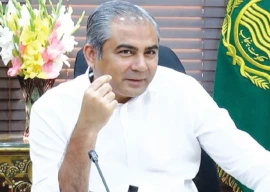

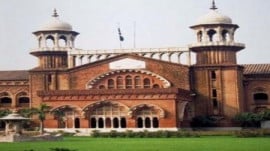
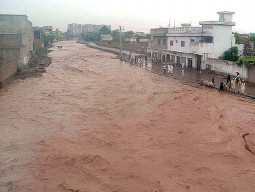
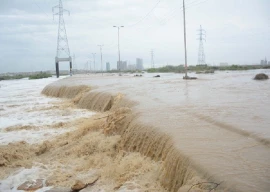








COMMENTS (1)
Comments are moderated and generally will be posted if they are on-topic and not abusive.
For more information, please see our Comments FAQ